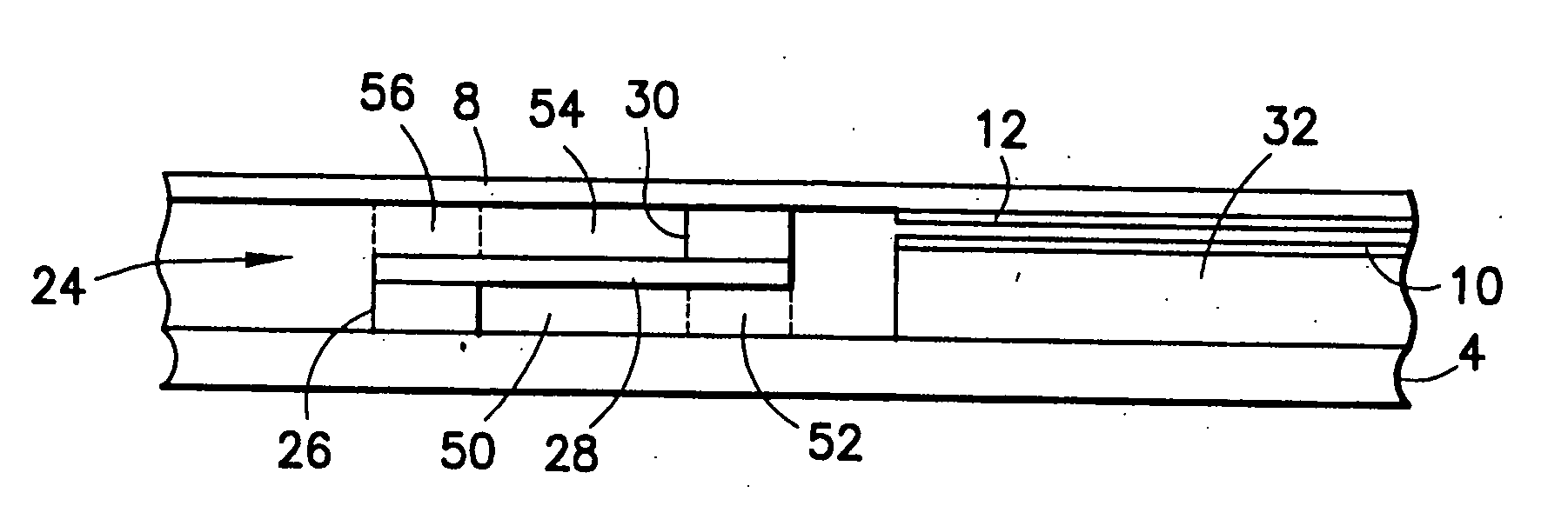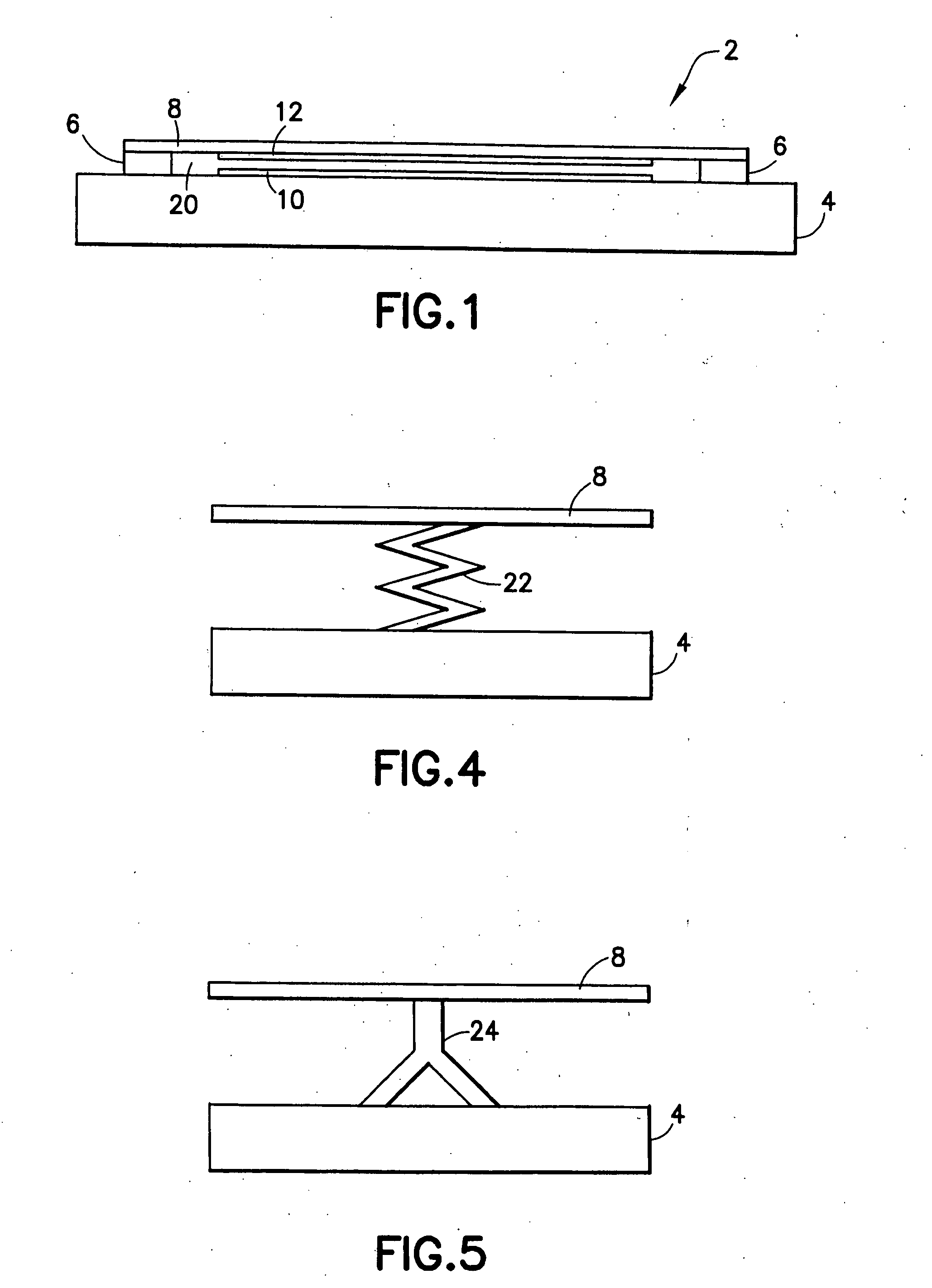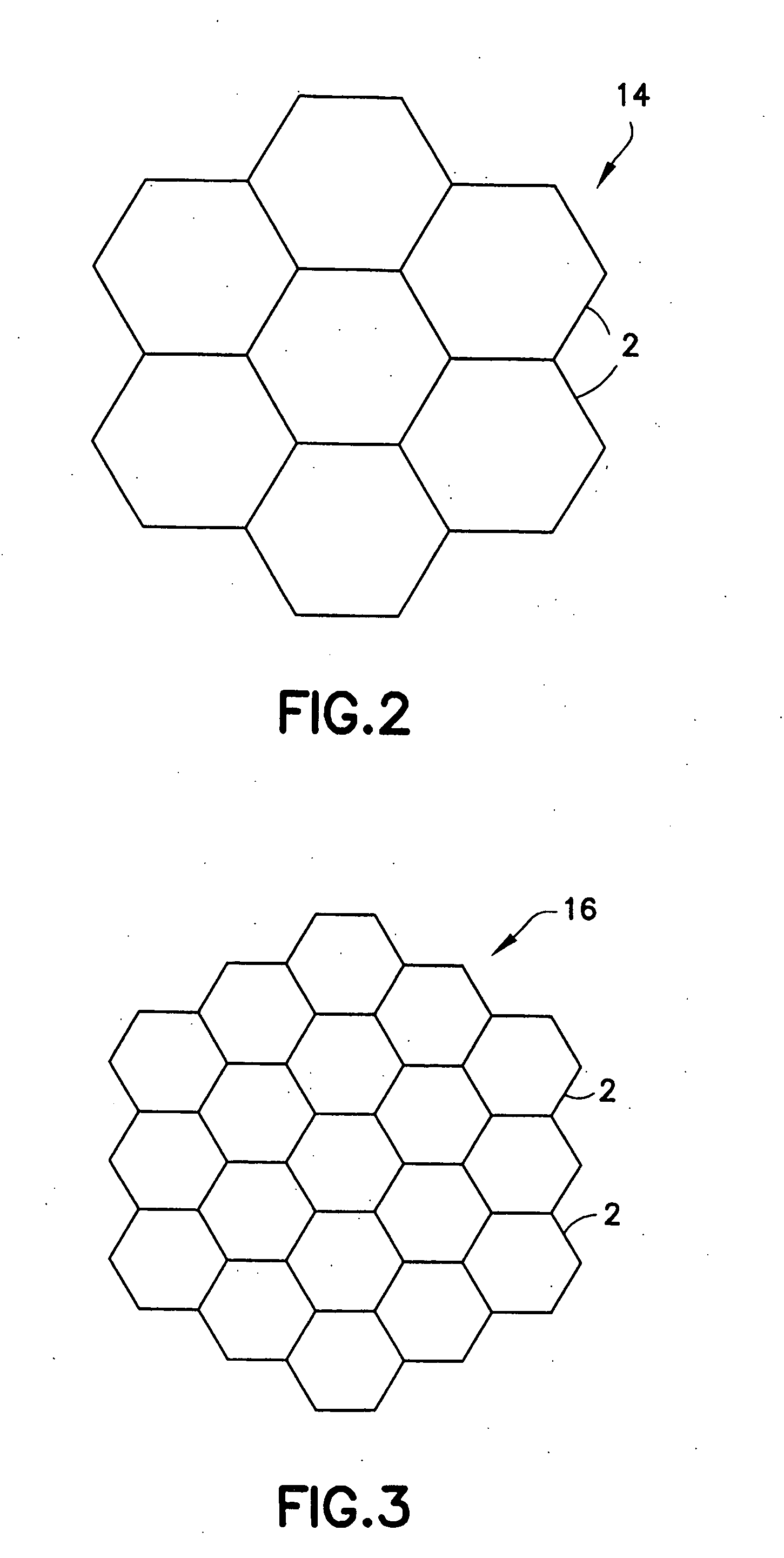Micromachined ultrasonic transducer cells having compliant support structure
a technology of support structure and micromachined ultrasonic transducer, which is applied in the field of micromachined structure, can solve the problems of significant detection current generation, significant ultrasound generation, and reduce the effective area of the transducer array, and achieves uniform membrane displacement, effective transformation, and greater membrane displacement
- Summary
- Abstract
- Description
- Claims
- Application Information
AI Technical Summary
Benefits of technology
Problems solved by technology
Method used
Image
Examples
Embodiment Construction
[0028] Capacitive micromachined ultrasound transducers (cMUTs) are silicon-based devices that comprise small (e.g., 50 μm) capacitive “drumheads” or cells that can transmit and receive ultrasound energy. Referring to FIG. 1, a typical MUT transducer cell 2 is shown in cross section. An array of such MUT transducer cells is typically fabricated in (bulk micromachining) or on (surface micromachining) a substrate 4, such as a silicon wafer. For each MUT transducer cell, a thin flexible membrane or diaphragm 8 is suspended above a cavity 20. The membrane 8 is supported on its periphery by an insulating support 6. The insulating support 6 typically comprises a relatively rigid vertical wall that encloses the cavity 20 underneath the membrane 8. One cMUT cell typically shares sections of the wall with its neighbors. The cavity 20 between the membrane 8 and the substrate 4 may be air- or gas-filled or wholly or partially evacuated. A film or layer of conductive material, such as aluminum a...
PUM
 Login to View More
Login to View More Abstract
Description
Claims
Application Information
 Login to View More
Login to View More - R&D
- Intellectual Property
- Life Sciences
- Materials
- Tech Scout
- Unparalleled Data Quality
- Higher Quality Content
- 60% Fewer Hallucinations
Browse by: Latest US Patents, China's latest patents, Technical Efficacy Thesaurus, Application Domain, Technology Topic, Popular Technical Reports.
© 2025 PatSnap. All rights reserved.Legal|Privacy policy|Modern Slavery Act Transparency Statement|Sitemap|About US| Contact US: help@patsnap.com



